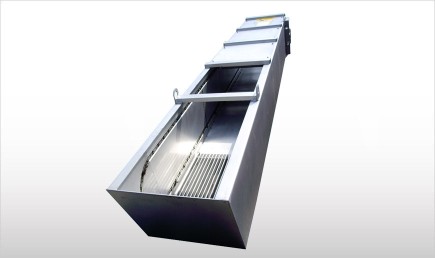
Mechanical Coarse bar Screen in Jaipur

A mechanical coarse bar screen is a preliminary wastewater treatment equipment used to remove large solid materials such as plastics, rags, wood pieces, bottles, and other debris from raw sewage or industrial wastewater. Unlike manual bar screens, it operates automatically with the help of mechanical rakes, chains, or combs that continuously or intermittently clean the screen bars.
The coarse bar screen consists of vertical or inclined bars with a relatively wide spacing (usually 25–100 mm) that allow water to pass through while capturing bulky solids. The accumulated screenings are lifted by a mechanized cleaning system (e.g., chain-driven rake, escalator mechanism, or rotary brush) and discharged into a collection bin, conveyor, or compactor for further disposal.
This automation reduces manual labour, ensures uninterrupted flow, and prevents clogging or damage to downstream treatment units such as pumps and fine screens.
Properties
- Automatic Operation – Equipped with rakes, chains, or combs for continuous or intermittent cleaning without manual intervention.
- Bar Spacing – Typically 25–100 mm, designed to trap large debris while allowing wastewater flow.
- Heavy-Duty Construction – Made of stainless steel or mild steel (galvanized/painted) for corrosion resistance and durability.
- Inclination Angle – Usually installed at 60°–80° to facilitate easy screenings removal and efficient flow passage.
- Continuous Debris Removal – Prevents clogging and ensures smooth functioning of downstream equipment such as pumps, fine screens, and treatment units.
- Screening Handling System – Discharges screenings into bins, conveyors, or compactors for hygienic and easy disposal.
- Low Maintenance – Designed for long service life with minimal manual cleaning or servicing.
- High Capacity Handling – Suitable for large volumes of wastewater in municipal and industrial applications.
- Safety Features – Often integrated with overload protection and emergency stop systems.Energy Efficient – Operates with relatively low power consumption compared to manual cleaning costs and efforts.